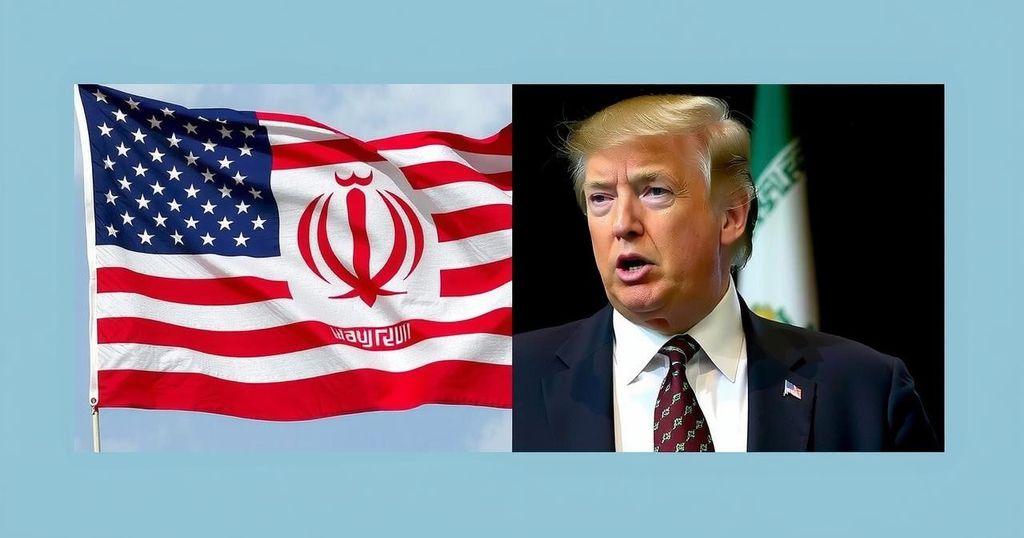The fall of Bashar al-Assad’s government in Syria marks a potential shift in U.S. foreign policy under Trump, emphasizing increased sanctions against Iran. This geopolitical change prompts considerations for U.S. regional influence, fortifying alliances with Israel and Gulf states while recalibrating interactions with Russia. The reconstruction of Syria may also align with U.S. interests in curtailing Iranian power and fostering a pro-Western leadership.
The recent fall of Bashar al-Assad’s government in Syria on December 8, 2024, poses significant implications for United States foreign policy, particularly under President Trump’s anticipated leadership following his inauguration on January 20, 2024. The removal of a longstanding ally of Iran may lead the U.S. to reconsider its strategic approach toward Tehran. Historically, the U.S. has responded to Iranian actions by imposing economic sanctions, and Assad’s departure might provide a further rationale for intensifying such measures, thereby weakening Iran’s influence in the region.
President Biden’s acknowledgment of the difficulties faced by Iran, Russia, and Hezbollah in sustaining Assad’s regime signals a potential shift in U.S. policy. Biden remarked, “The upshot for all this is, for the first time ever, neither Russia nor Iran or Hezbollah could defend this abhorrent regime in Syria.” However, as Biden’s term concludes, the responsibility for defining future U.S. actions could revert to Trump, who previously argued for withdrawing U.S. troops from Syria.
Trump’s administration is expected to adopt a confrontational stance toward Iran, reviving the “maximum pressure” strategy utilized during his first term. This may manifest as increased sanctions targeting Iranian oil and financial sectors, particularly as a means of mitigating Iranian influence following the political upheaval in Syria. The U.S. could perceive Assad’s ousting as an opportunity to undermine Iran’s regional power.
In addition to economic sanctions, the geopolitical landscape of West Asia may undergo significant transformations. A post-Assad Syria could yield opportunities for the U.S. to enhance its alliances, particularly with Israel and Gulf states, promoting a united front against Iranian expansionism. Furthermore, this shift may complicate U.S. relations with Russia, as Moscow could seek to regain influence amidst a changing power dynamic.
Lastly, Syria’s potential reconstruction under a new, more favorable government could align with U.S. interests, provided it aids in curbing Iranian activities while establishing a pro-Western leadership. The transitional period post-Assad will likely influence the extent and nature of U.S. involvement in regional affairs and reconstruction efforts.
In summary, the implications of Assad’s fall for U.S. strategy towards Iran are multifaceted. While it may offer strategic opportunities to diminish Iranian influence, it is accompanied by challenges that necessitate careful diplomatic navigation and reassessment of military policies in a turbulent geopolitical landscape.
The geopolitical landscape of West Asia has long been complicated by the conflict in Syria, particularly due to Bashar al-Assad’s alliance with Iran and Russia. The fall of Assad’s regime marks a pivotal moment, potentially altering the balance of power in the region. The U.S. has historically employed sanctions as a tool against Iran, particularly in relation to its nuclear ambitions and support of regional militant groups. Trump’s return to power could signal a renewed focus on containing Iranian influence, taking advantage of the changing dynamics in Syria.
The fall of Bashar al-Assad’s government not only represents a critical juncture in the Syrian conflict but also presents substantial implications for U.S. foreign policy, particularly regarding Iran. Under Trump’s anticipated administration, a renewed campaign of economic sanctions against Iran appears likely, leveraging Syria’s changing dynamics to bolster U.S. strategic interests in the region. However, this situation also introduces complexities that require thoughtful diplomatic engagement and a comprehensive understanding of regional realities.
Original Source: www.tehrantimes.com






